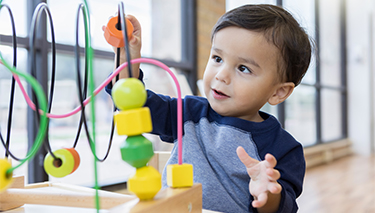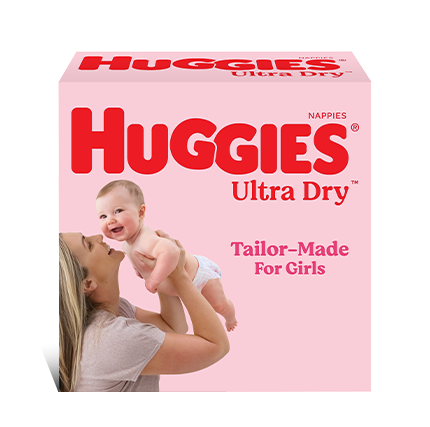Active toddlers at play
Imaginative and pretend play
Imaginative or pretend play, stimulates the senses, creates opportunities for exploration and creative thinking, and helps your child to develop key skills vital for intellectual and emotional growth as well as social success. The first signs of pretend play emerge around 12 to 18 months. Your 18-month-old may try to feed their baby doll with a spoon, or pick up a block and bring it to their ear as a phone. Early forms of pretend play are largely solitary in nature. While your 2-year-old may enjoy the company of friends, a closer look at their play will tell you that each is under the spell of a separate fantasy.
It is not until after their third or even fourth birthdays that children’s pretend play becomes truly interactive, although your child will continue to enjoy solitary pretend play activities with miniature toys (e.g. dolls houses, petrol stations, castles, small trucks) and props.
The years from three to six are generally thought of as the “golden years” of pretend or imaginative play; at no other time in your child’s life will they be so immersed in a world of fantasy. You can facilitate your child’s play be providing them with props and toys. In the early stages children need realistic props such as irons, miniature figurines, kitchenware, medical kits, and gardening tools to get them started and to sustain their play, but as they get older and more comfortable with this form of play, unrealistic props are equally important (e.g., cardboard boxes, sticks, cartons). It is also good to include open-ended objects like coloured blocks as these extend children’s imagination with unlimited possibilities.
Older preschoolers will enjoy engaging in role-play and love to dress-up. One day my daughter greeted me as “The Great Becean (her word)” – a world famous magician! The next day she was a lion – king of the house (at least for a day)!! Many role-plays involve simple imitation of adults; this helps your child to better understand what the world of adulthood is all about. If you are invited to participate (which at times you will be), take direction from your child as this is their world and they will relish the opportunity to be in-charge! When adults are overly intrusive in leading children’s play, many of the intrinsic benefits are lost.
Developmentally, pretend play enhances children’s self-confidence, self-awareness, and self-control. It stimulates children to think creatively, and improves memory, language and perspective-taking skills. Imaginative play is the form of play that is most social and has the greatest impact on the development of key skills important for children’s success with peers. When playing creatively with their friends your child learns to cooperate and compromise (e.g., “I want to be the princess.” “No. You have to be the Queen, you were the princess last time!”), to participate in social activities, and to understand social relationships.
For more information see Physical Development or Toddler.
Written by Dr Cathrine Neilsen-Hewett and provided to us by KiDS Central and the Early Learning Centre.
Last Published* May, 2024
*Please note that the published date may not be the same as the date that the content was created and that information above may have changed since.




















